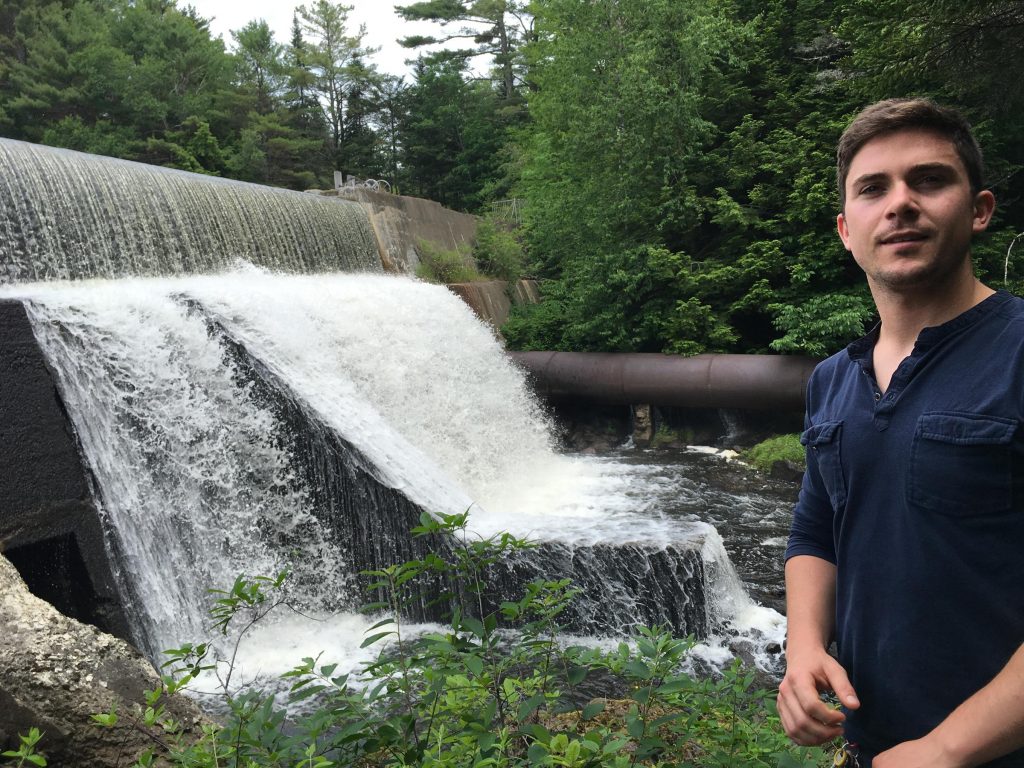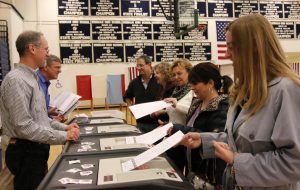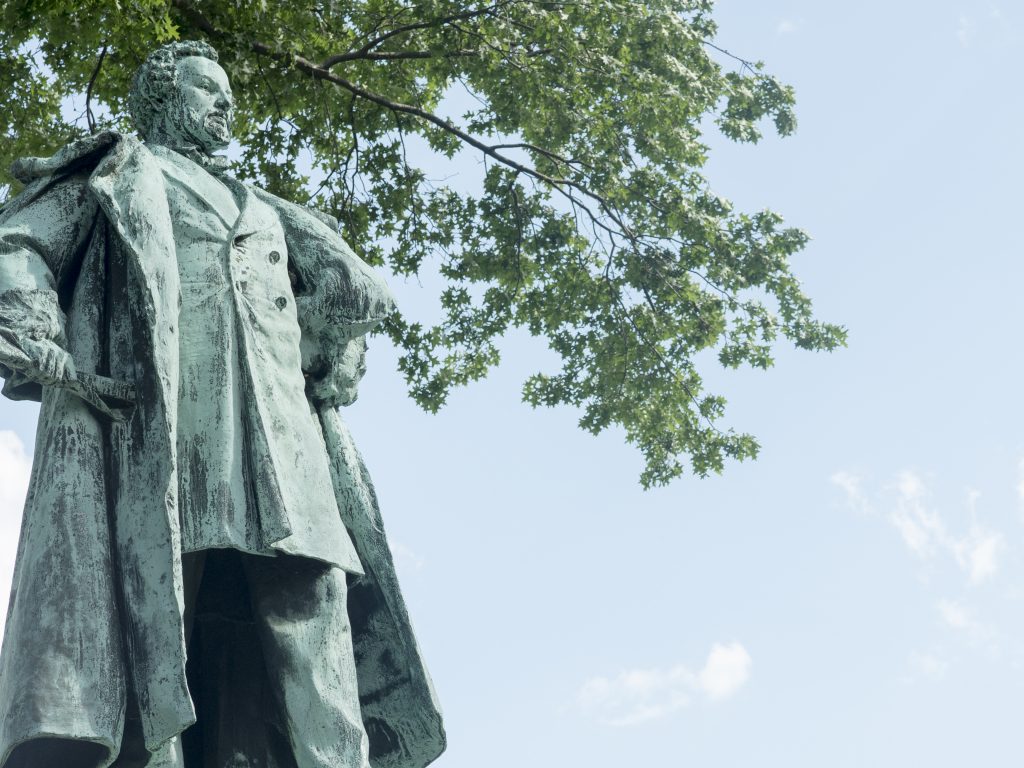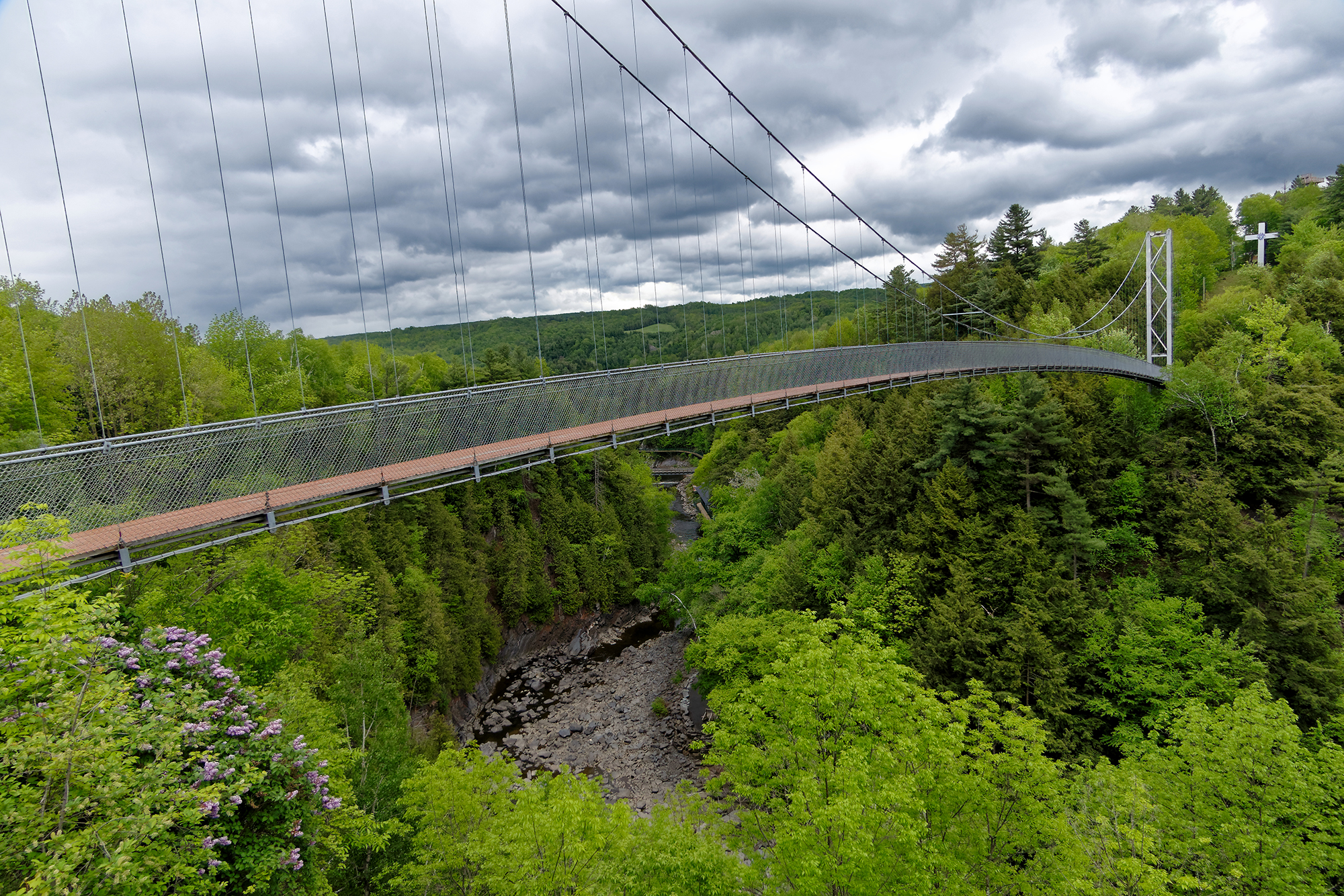Episode 59: Dammed

Dams clog rivers and streams all over New England. Environmentalists want to take many of them down to improve habitat for fish, but some entrepreneurs want to put them back to work doing their original jobs: making power. Plus, with the Trump Administration’s voter fraud commission meeting in New Hampshire this week, we revisit our conversation about the wacky political world of the Granite State. And, we take trips to two places that are trying to attract tourists: the factory site of a controversial gun magnate, and a mythical wonderland that takes shape just over the border in Québec.
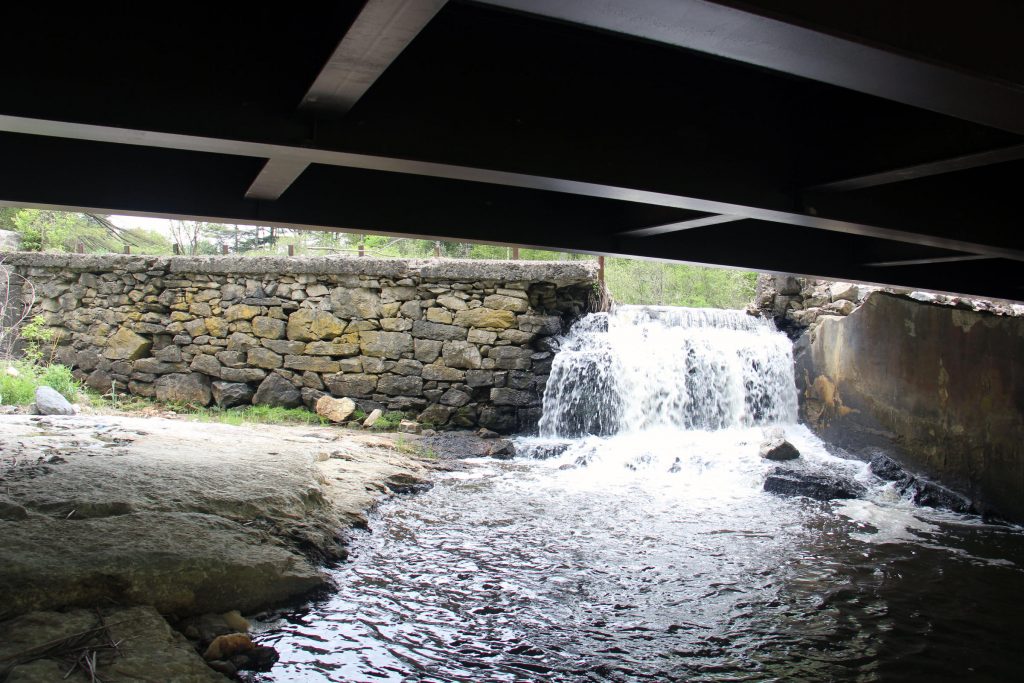
Built about 150 years ago, Mill Pond Dam in Colchester, Vt., is currently breached, but still creating a small swamp upstream. Photo by Kathleen Masterson for VPR
What Do You Do With an Old Dam?
The rivers and streams of New England are littered with thousands of dams. Many of them were used to produce the energy that sparked industry, but they’re now doing little more than than clogging waterways. Conservationists looking to restore the health of rivers are often met with political and emotional resistance when they try to remove large dams. So some are turning their attention to smaller, privately owned ones. Vermont Public Radio’s Kathleen Masterson took a closer look.
But not everyone’s ready to tear down old New England dams. In central Maine, a couple of young entrepreneurs sees potential in old dams in the form of renewable energy and profit. Maine Public Radio’s Fred Bever has more.
Vote First or Die
Even by New Hampshire’s high standards, this was a pretty big week in politics.
President Trump’s controversial voter fraud commission met in Manchester, where one of the commission’s members, long-time New Hampshire secretary of state Bill Gardner, faced criticism from all four members of the state’s congressional delegation.
Gardner used the occasion of the meeting to rebuke Kris Kobach, the Kansas Secretary of State, for his op-ed on Brietbart.com, suggesting widespread voter fraud in the 2016 New Hampshire election. It’s a claim that FactCheck.org called “bogus.”
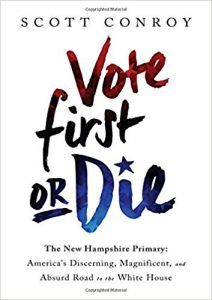 Meanwhile, a state judge ruled against a provision in a new voter law that would have subjected voters to a possible fine or jail time if they failed to submit residency paperwork in a timely fashion. The judge wrote that the provision was a “very serious deterrent” to the right to vote.
Meanwhile, a state judge ruled against a provision in a new voter law that would have subjected voters to a possible fine or jail time if they failed to submit residency paperwork in a timely fashion. The judge wrote that the provision was a “very serious deterrent” to the right to vote.
That New Hampshire’s elections have come under scrutiny is something that grates at state residents. The Granite State takes pride in the way it conducts its elections, with no institution more sacred than its first-in-the-nation primary.
Scott Conroy is a long-time political reporter, who grew up in neighboring Massachusetts, and who became enamored with New Hampshire’s political culture while covering presidential candidates criss-crossing the state.
His book is Vote First or Die: The New Hampshire Primary: Americas Discerning, Magnificent, and Absurd Road to the White House. NEXT caught up with Conroy earlier this year.
Building a National Park Based on Hartford History Sparks Pride, and Discomfort
Unlike New Hampshire, Connecticut has long suffered from a kind of civic inferiority complex. The state is stuck between Boston and New York, but far more congested than scenic New England destinations to the north.
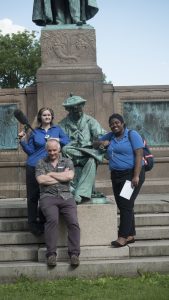
Student reporters Nicole Ellis (left) and Madyson Frame pose at Samuel Colt’s statue in Hartford’s Colt Park, with historian Bill Hosley. Photo by Sam Hockaday
And then there are the money problems. It’s one of the richest states in the nation, but the state budget is billions in the hole. And Hartford, the state’s capital, struggles with a perception that it has too much crime and not enough to do.
But something big is on the horizon. A new national park, set to open in the next few years, will tell the story of one of the city’s most important industrial leaders. Coltsville National Historical Park will be built on land that once belonged to firearms manufacturer Samuel Colt, and will include parts of the historic Colt factory complex.
Colt had an outsized influence on Hartford and was a major player in the Industrial Revolution. But is his a history worth honoring? Madyson Frame, a recent graduate of Hartford’s Journalism and Media Academy, reports.
Lighting Up the Forest Flips the Switch on a Small Town
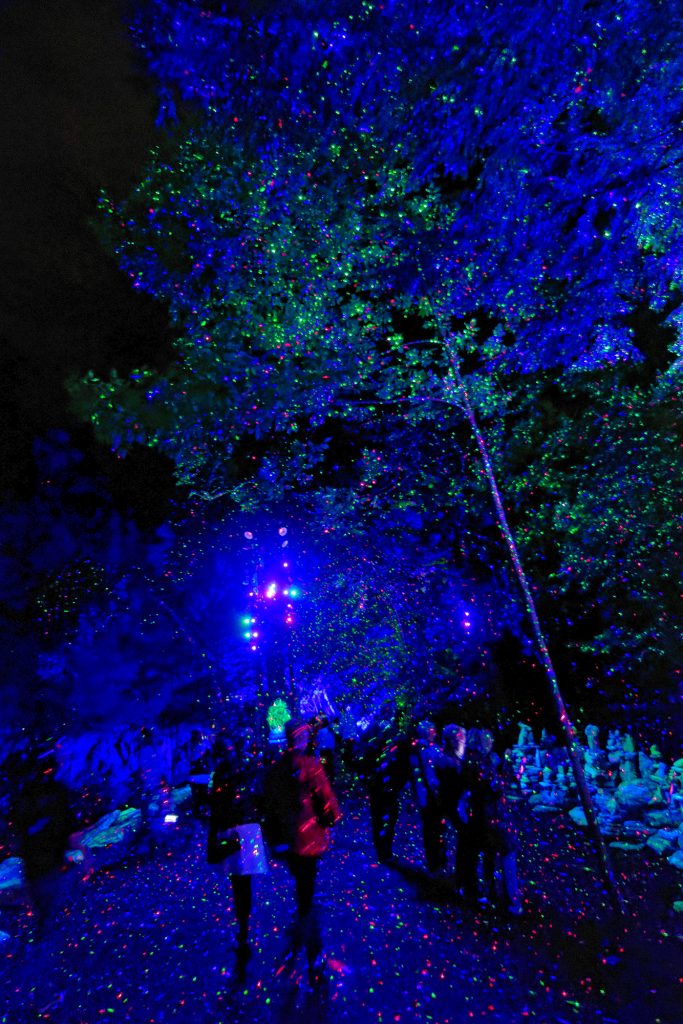
A stroll through Foresta Lumina includes some sparkly, stunningly lit sections of forest. Photo by Chris Jensen
While Hartford dreams about creating a tourist attraction from the ground up, Coaticook, Québec, which sits right on the Vermont border, pulled it off.
Local officials took an unusual idea, made a $1 million gamble, and hit a tourism geyser: a high-tech enchanted woodland called Foresta Lumina. Reporter Chris Jensen, with the New Hampshire Center for Public Interest Journalism, went to see for himself.
Below: a video from the Creators Project goes behind the scenes at Foresta Lumina.
About NEXT
NEXT is produced at WNPR.
Host: John Dankosky
Producer: Andrea Muraskin
Executive Producer: Catie Talarski
Contributors to this episode: Kathleen Masterson, Fred Bevers, Madyson Frame, Nicole Ellis, Tikeyah Whittle, Sam Hockaday, Jose Vargas, and Chris Jensen
Music: Todd Merrell, “New England” by Goodnight Blue Moon, “Nature Kid” by Podington Bear, “Cm” by Podington Bear
We appreciate your feedback! Send praise, critique, suggestions, questions, story leads, and tourism ideas to next@wnpr.org.

